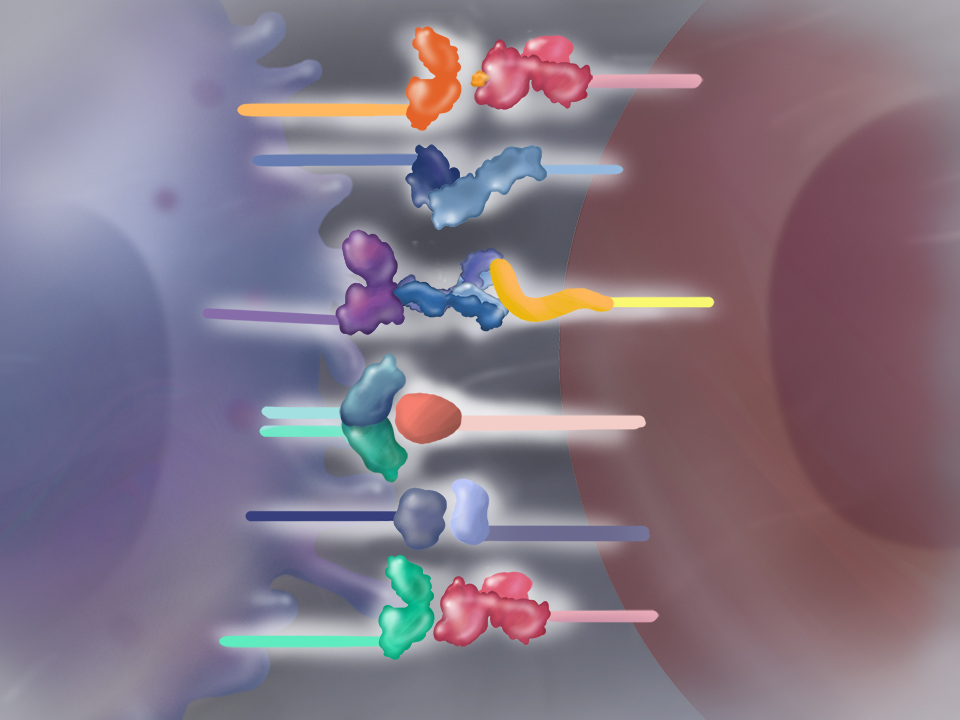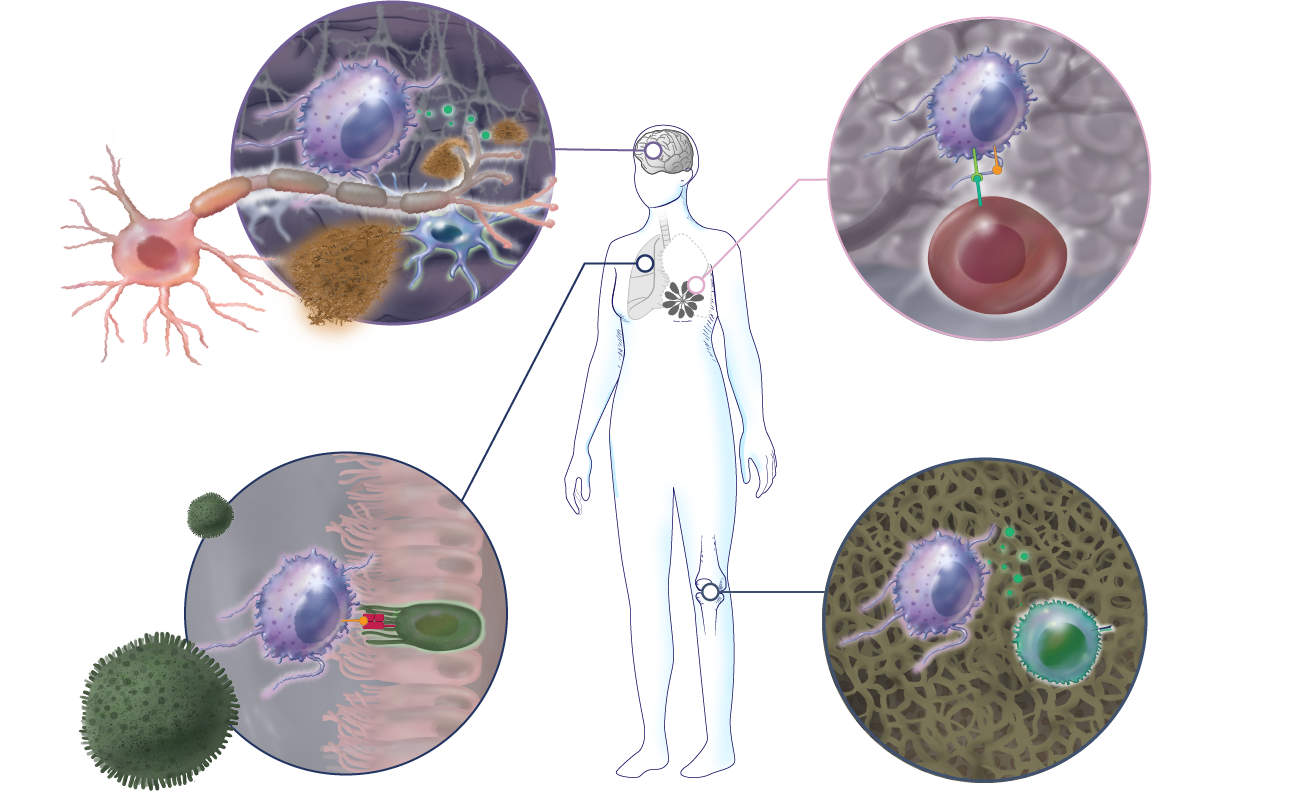Science
Natural killer (NK) cells play a vital role in the body’s protection against diseased and abnormal cells
Natural killer (NK) cells play a vital role in the body’s protection against diseased and abnormal cells
NK cells are a type of cytotoxic white blood cell in the body that is active in both innate and adaptive immune responses. Their purpose is to find and destroy diseased and abnormal cells, while preserving the body’s healthy cells and participating in the generation of immune protection.
NKGen Biotech’s NK cell immunotherapy was created to take advantage of the NK cells’ role in the body. By enhancing the body’s natural killers, we are maximizing the body’s ability to destroy diseased and abnormal cells.
NK cells are the first line of defense against infection, cancer and autoimmune disease. NK cells destroy their target by releasing toxic substances, perforin and granzymes, into the infected or abnormal cell resulting in target cell death.

NK cell
Inhibitory KIRS
PD1
CD16
NKG2D
NCRs
Activating KIRs
Tumor cell
MHC Class I
PDL1
Tumor antigen
NKG2DL
NCRL
Non-self MHC
As seen in the graphic, NK cells have multiple activating and inhibiting receptors to recognize dangerous cells. The balance between activating and inhibiting signals determines the NK cell’s response. When there is a mismatch between an inhibitory subgroup of KIR receptors on NK cells and major histocompatibility complex (MHC) class I molecules (shown in red) on the surface of target cells, the NK cells can get activated due to lack of inhibitory signals leading to killing of the target host cell.
NK cell activity is vital for maintaining health in many systems of the body, but their activity can wane during times of stress and fatigue. Infections, medications like steroids or immunosuppressants and disordered sleep can all decrease NK cell activity in the short-term. Long-term decreases in NK cell activity experienced with age may be a contributor to the development of neurodegenerative and oncological diseases.
NK cells actively remove infected and abnormal cells and they can reduce autoimmunity by influencing and/or removing autoreactive T cells. NK cells help maintain the health of the body and are important protectors of the central nervous system, including the brain.

Neurodegeneration
Alzheimer’s Disease
Cytokines
Activated NK cell
Microglia
Plaque
Neuron
Cancer
Breast cancer
Activated NK cell
Tumor
Cancer cell
Infection
Respiratory syncytial virus
Activated NK cell
Infected cell
Virus
Autoimmunity
Rheumatoid arthritis
Activated NK cell
Cytokines
T cell